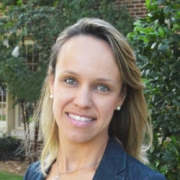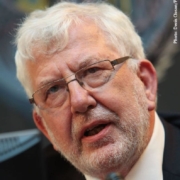Today we explore educational privatization in Brazil and Portugal.
With me is Rui da Silva, a researcher in the Center for African Studies at the University of Porto in Portugal. Together with Theresa Adrião, Rui has recently published a new article in the journal Globalisation, Societies and Education entitled “Public funding to private providers of compulsory education: crossed looks between Brazil and Portugal in the context of globalisations.”
Citation: da Silva, Rui, interview with Will Brehm, FreshEd, 213, podcast audio, September 7, 2020. https://freshedpodcast.com/ruidasilva-2/
Will Brehm 1:58
Rui da Silva, welcome back to FreshEd.
Rui da Silva 2:01
Thank you Will.
Will Brehm 2:03
So, I want to talk about Brazil and Portugal today. So, how would you describe educational privatization in Brazil?
Rui da Silva 2:12
In the Brazilian case, we have to take in consideration that Brazil is a federation. So, the responsibility for education is divided by the federation government, the states, and the municipalities. So, in Brazil, the parents that do not send the children to school, it is considered a crime. So, in principle, every children have to go to school. So, and in Brazilian case, the Brazilian state have to provide free education for all. And the private providers that want to operate in the system have to have a formal permission from the government, but they have to ensure that they follow the national regulations and there are different types of education providers, so religious schools, philanthropic schools and for-profit schools. And in the case of basic education that is the focus of this article, the national education law from the mid-90s restricted the transfer of public funds to private schools. The private schools in stricto sensu, the private schools that have to … final goal the profit. So, allowing only the state to transfer public funds for nonprofit schools. But the condition under that the state can transfer this public funds to private providers- is to ensure the expansion of the education system. So, if this condition is taken is allowed to transfer public funds to the education.
Will Brehm 4:00
So, it’s quite interesting. So, it’s a case of -in Brazil, was there limited access to education that was seen as a problem that the government was trying to solve and therefore to increase access, they needed basically as many providers as possible? Was that sort of the logic?
Rui da Silva 4:18
Yeah, that’s right. So, especially in the ’90s, when the end of the dictatorship. However, in conjunction with the expansion of the education service recently, the government also allow that the public education system and the schools can hire consultancies and that opened the space for private providers to provide services to curriculum inputs and all these kinds of consultancy services and companies like Pearson and Santillana penetrated, how can I say, the Brazilian market. And these transnational companies entered the public education system through these consultancies and provide curricular inputs to public schools.
Will Brehm 5:12
Interesting. So, it’s not just simply the case of for-profit schools receiving public money, which seems to potentially be limited to some extent. It’s also, or more of a case of, private companies receiving consultancies to help with more of the education systems such as curriculum and the like.
Rui da Silva 5:35
Yes. In relation to the second decade of this century, investment funds began to operate also in the Brazilian market. As we were talking about with these curriculum problems, didactic materials, training courses for teachers, and they established education network. And more recently, in the last decade of this century, we saw in Brazil, the rise of corporations and business-based foundations, philanthropic capitalists, we can consider them, that have started working with the government and support the government to define educational priorities and policies. So, with the developments of the last 20 years, the privatization of education that they influence now the privatization of the education supply, the education management and the curriculum because they also work with the government with these other curriculum inputs, teacher training, teacher materials, they work as consultants -especially not the national government but the states and municipalities government.
Will Brehm 6:47
Interesting. I was just thinking about, at what level is this privatization occurring? So, it’s happening at all the levels from municipalities, states, and the federation?
Rui da Silva 6:58
Yeah. Because it is a federal government, the states and the municipalities is very diverse landscape, but on the beginning, this privatization issue started with schools, but then more recently, we have been allowing them to provide consultancies. They also penetrate in the curriculum, the materials, teacher training. So, now these private providers, special these foundations that can be categorized that philanthrocapitalism now penetrates the all system in the educational supply, education management, and the curriculum. So, what in the beginning was only the provision of schools now goes to the management and the curriculum, particularly also because the recent development in Brazil, the changing of the law, also allow private companies to manage public schools, especially in the municipalities.
Will Brehm 7:57
So, all of these different changes that have happened over the last maybe two decades or so? What sort of impact has this had on educational outcomes? Do we know?
Rui da Silva 8:09
The results are mixed, and usually, the debate is very ideological. The issues of results, educational outcomes are not so present. The debates are more about the benefits or that the private providers are better than the state. Also, because on the end, the debate is that. Especially that in some municipalities, particularly, the presence of the state is weaker, and people also … the main argument is the benefits of the private. The private managed better, the private gets better outcomes, and so on. But on the end, you don’t go to the students results. But finally, if you go, usually you’ll get better results because if you restrict the curriculum, if you train the students to perform on the exams, of course, you will get better results on the end.
Will Brehm 9:11
So, let’s turn to the case of Portugal. How would you describe educational privatization in Portugal?
Rui da Silva 9:19
Yeah, in the case of Portugal, historically, we have the presence of the Catholic Church as the main provider of primary education in conjunction with the limited state supply, but that was a long time ago. So, more recently, and the issues of the more radical changes, can I say, occur in the 80s and in the 90s, especially with the end of our long dictatorship in Portugal where privatization of education system prevail. Nevertheless, during this 80s and 90s, there was a tension, especially because of the Carnation Revolution in Portugal in ’74. So, there was a tension between this privatization agenda, but also the issues around because we ended the long dictatorship. So, also, the issues around popular participation, social inclusion and justice marked this political agenda. So, we see and hear an agenda of the market, but also the population could have private initiatives, but in basis of cooperatives and social inclusion, and popular participation. And also, during this time, especially in the 90s, Portugal joined European Economic Community, now European Union, and also that bring changes to this liberalization of education systems. So, there’s this conjunction about the end of the dictatorship in Portugal and also in the 90s, the European Union. So, public funds were transferred also to non-profits or for-profit education providers, also with the same as Brazil, because we have to expand our education system. So, the condition to provide public funds to private providers was that -we call it contratos de associação, it’s association contracts that the government establishes with these private providers -for profit or not for profit- to the expansion of compulsory education for all because during the dictatorship there was little investment in education and one of the principles of the revolution was the expansion of basic education for all.
Will Brehm 11:41
And did it? Did access expand by bringing in more private providers?
Rui da Silva 11:47
Yeah. Because the law says when the state couldn’t provide education, if a private provider -for profit or not for profit or a cooperative- can be established and provide education, they will get funds from the government. And that was, in fact, I believe a success because in the 80s and the 90s, there was a huge expansion of the basic education, and that reflects now. But in the Portuguese case, the government never stopped investing in this expansion of the system.
Will Brehm 12:23
So, there was continuous investment of public money into public schools, while also allowing sort of private providers to come in as well to supplement what the government was providing?
Rui da Silva 12:35
Yeah. And the social funds from the European Union and then the European Economic Community also helped the government to invest in construction of public schools and the expansion of the Portuguese education system. So, that in conjunction in the present moment, with the lowest fertility, so we have less younger population, the public system can accommodate everyone. Still, there is also private providers, of course. They can open schools, they can manage schools, but the public education system can accommodate everyone. So, one particular thing also in the Portuguese case, and that is private schools that receive public funding, they must follow the national curriculum. They have pedagogical autonomy and management autonomy, of course, but they have to follow the national curriculum. And also, they cannot charge fees to the students but can charge extra fees to the students if they want to have extracurricular activities or transport.
Will Brehm 13:50
So, would you say that the private providers in Portugal are, in a sense, more heavily regulated than in Brazil?
Rui da Silva 14:00
Yeah, right. They have to follow the national curriculum.
Will Brehm 14:05
And so, in Brazil, there is no national curriculum?
Rui da Silva 14:07
There wasn’t in 2018. Now they have a national curriculum. But the interesting thing here is that this national curriculum was pressure from these private companies that provide curriculum materials and pedagogical materials.
Will Brehm 14:30
In Brazil, oh right! Because of all the consultancies.
Rui da Silva 14:33
Yeah, in the Brazilian case, yeah. It’s interesting this thing because here in Portugal, it was the state that defined the national curriculum and said every school have to follow the national curriculum. In the Brazilian case, there wasn’t the national curriculum because also the dimension of the countries are very different. But with the pressure of these private companies that provides curriculum materials and pedagogical materials and training, with the pressure of them, they established a national curriculum because there was interest of these private providers to have a standard curriculum because they only have to produce one type of materials. Now going back to the Portuguese case, what I think is also interesting in more recent years, that is from 2011 and 2015 when Portugal was during the tax adjustments and during the acute of the crisis, the discourse of the benefits of the private providers almost the same as in Brazil. The private managed better, the private has the cost benefits higher. All these perspectives try to reshape this community cooperative perspective, that was behind the association contracts DNA from the 70s and 80s. So, during this period, we saw in the public divides in Portugal trying to transform these association contracts that I told you they were created to promote the expansion of the education system. The narrative tried to put this association contracts, tried to transform them into education vouchers, and during this period in 2013 in Portugal, the government at the time also made changes on the law to put the kind of education vouchers but with a different name, called it “simple family support contracts,” contratos simples de apoio à família. So, they are education vouchers but with a spinning in the name just to try to allow the transfer of public funds to private schools without these association contracts, because by law, you can only transfer public funds to these schools if they are contributing to the expansion of the system.
Will Brehm 16:55
So, what would you say are some of the main similarities between the cases of Brazil and Portugal when it comes to educational privatization?
Rui da Silva 17:05
At the broader level in relation to Brazil and Portugal, the mechanism for to provide public funds to private education providers are the same. So, it’s to allow the expansion of the education system to find private schools where the state doesn’t have the capacity yet to provide education for all. So, to the fact that compulsory education is in both countries is a state responsibility, should be free and mandatory for all based on these principles. This is the main similarity. The principle for to provide public funds to private providers are the same. The expansion of the education system to have because it is a state responsibility, it should be free and mandatory for all. In Brazil, we have two main mechanisms, and in Portugal, we only have one the contratos de associação that I told you. So, this is the main similarity between the two countries, the aim of transferring public funds to private providers is the same. It is to the expansion of the system.
Will Brehm 18:10
And beyond the national curriculum, which we talked about previously, are there any main differences between these two cases?
Rui da Silva 18:19
The main difference between the two cases is the type of providers. But before going through this, we have to take in consideration the dimension of each country and also the economic situation of the two countries. I think these are the two main drivers. We have to pay attention that Portugal have around 10 million habitants with a very aged population, and Brazil have 210 million habitants with a very young population. So, this also leads to different institutions that promote the education providers are different. In Brazil prevails development of financial institutions have entered philanthropy. In the case of Portugal prevails national private education entrepreneurs. And national only, not international. So, the education private providers in Portugal are cooperatives of professionals, religious, the Catholic Church also, and the private groups in stricto sensu. And in Brazil, the private providers are small private companies, also religious, and more recently, self-declared civil society organization, but all these schools that declare themselves civil society, they are connected to large corporations, especially large financial groups. And in other hand, the profiles of the educational private providers that receive public funds are also changing in both countries. In Brazil, we have the rise of risk philanthropicalists in conjunction with more traditional education providers, traditional philanthropists, and religious schools. And in Portugal, we have the Catholic church, teacher cooperatives, and a small group of educational entrepreneurs.
Will Brehm 20:09
And so, these demographic and economic differences, it also makes me wonder if there’s political differences, especially because Brazil has recently, politically, has moved to the Right. Whereas Portugal has recently moved more to the Left in terms of its sort of national politics, I think. How do these differences in politics, how do you interpret them within the sort of move towards educational privatization?
Rui da Silva 20:37
Right. So, as you can imagine, in both cases, the answer to your question, as you imagine, is complex. But nevertheless, for the podcast listeners that are not familiar with the two countries, we can consider that in the Portuguese case, it was related with austerity policies implemented between 2011 and 2015. During these crises, we have a more right-wing government that implemented all of these austerity measures -the promotion of the private providers, the transfer of public funds to private providers. And in the 2015 elections, we have a historical parliamentary agreement between the Socialist Party, the Communist Party, and the Bloco de Esquerda, which is another left-wing party. So, this parliamentary agreement was the first time in our history we have the parliamentary agreement with all these three parties. So, it promoted a government that were more concerned with the promotion of social rights and social justice. So, this historical agreement reverted all these issues around the education privatization and allowed a more left-wing government within the Portuguese case. But now, when we go to the Brazilian case that we have a more right-wing government, the result is even more complex than in Portugal because we have the Workers Party Crisis, the national and international economic elite interests also were in stake, we have a rise of evangelical churches particularly that promote a more conservative worldview. All these aligned with a romanticized perspective from the Brazilian dictatorship. And the international scenario that favored these ideas. All this in conjunction also promoted these more right-wing governments that we are witnessing and all this catastrophe that we are seeing in the management of the Coronavirus crisis, and the rise of the private sector within the government and all the cuts we have on social protection and the issues around social justice and social rights.
Will Brehm 23:04
So, do you think it’s fair to say that, looking into the short-term future, we might be able to expect that in Brazil, educational privatization will likely advance more than where it is today? And whereas in Portugal, under the left-leaning government, it’s more likely to see sort of the retreat of educational privatization, or at least a growth of the public sector. Would that be a fair opinion to have about the future?
Rui da Silva 23:41
Yeah, I believe so. It’s a fair opinion. We are witnessing that in both cases. We are witnessed that in Brazil, the rise of privatization and cuts on social, in health, in education. When we are talking about education is there cuts. In the current moment in Brazil, there is a big discussion at this moment because of the federation funds to education. And in the Portuguese case, we witness this. The current government followed the legislation. So, they said that they only transferred public funds to public schools that they were helping the state to expand the network. And we witnessed huge decrease of private providers. Especially these private providers that they were dependent on public funds to operate. So, of course, the elite private schools, they keep running. But these other schools that were dependent on government funds to operate, almost all decreased the dimension that they have in the system because luckily, the investment from the last decades in the public system, and also the decrease of young population Portugal allows that the public education system can accommodate everyone.
Will Brehm 25:01
It’s a really interesting comparative case study. What do you think -studying Brazil and Portugal, and comparing the two cases -what do you think this tells us about the phenomenon of educational privatization more broadly?
Rui da Silva 25:16
More broadly, I think the comparison between these two countries show that the tensions that arise between the globalization and the localization and the conditions under which this global is localized. Indicating that there is no invisible end of privatization globally defined and disconnected from national and even local interests and regiments. I think this comparison also highlights the role of national actors and the political choices made in the definition of educational policies implemented. I believe that the Brazilian and Portuguese case is important contribution to the public debate and indicate that the main driver underlying the choices of policies are ideological and not taking into consideration the evidence available. The choice policies most of the times is mainstream and to promote or maintain a privilege of small group of people that are already privileges and also to favor some businesspeople and some groups that will profit economically from these policies. I believe that broadly that is what these two comparative cases can show us.
Will Brehm 26:36
Well, Rui da Silva, thank you so much for joining FreshEd again. Really a pleasure of talking and thank you for such an interesting comparative case of Brazil and Portuguese educational privatization.
Rui da Silva 26:49
Thank you, Will. It was a pleasure talking to you.
Want to help translate this show? Please contact info@freshedpodcast.com
Related Author Publications
Related Resources
Brazil
Blurring the boundaries of public and private education in Brazil
Public-private interface in Brazilian education governance
Compulsory education in Brazil: Privatization trends and limits the right to education
Public-private partnership in education: A promising model from Brazil
#Stayathome #Fiqueemcasa: Opportunities for new governances of public education in Brazil
Networks in action: New actors and practices in education policy in Brazil
Portugal
Education governance and privatization in Portugal
Curriculum policy in Portugal (1995-2007): Global agendas and regional and national reconfigurations
Governance in educational institutions in Portugal
Portugal. Educational policies and autonomy in Portuguese schools
Education policy in Portugal: Changes and perspective
The end of isolationism: Examining the OECD influence in Portuguese education policies, 1955-1974
Investment in education in Portugal: Returns and Heterogeneity
The reform on mass schooling in Portugal (1974-1991)
Have any useful resources related to this show? Please send them to info@freshedpodcast.com









